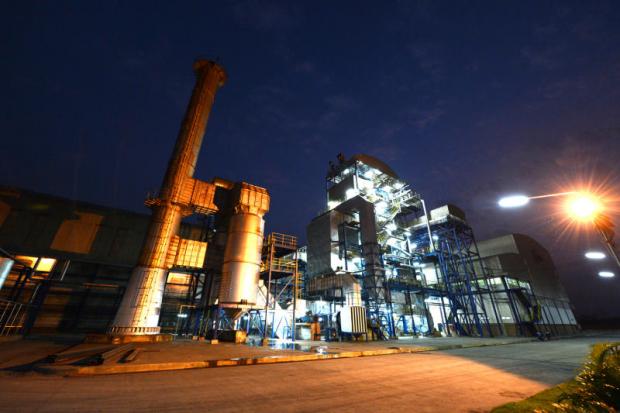
SET-listed miller Buriram Sugar Plc (BRR) has filed an application with the Securities and Exchange Commission (SEC) to launch an infrastructure fund to raise money for the expansion of its core sugar business as well as its renewable power business.
Managing director Anant Tangtongwechakit said the application was filed to the SEC on Jan 13 and Bualuang Securities has been appointed fund manager.
Pattarapong Pongsawasdi, the company's senior assistance managing director, said the proceeds raised from the infrastructure fund will be used to build its first new sugar refining factory.
Fund will also be set aside to develop the company's fourth biomass power plant when the company's sugarcane crushing capacity has risen, producing sufficient bagasse from sugar production to supply the power plant.
"We aim to build up our refining factory first to produce refined white sugar to serve rising demand on the world market," said Mr Pattarapong.
The company has a sugar producing capacity of 340,000 tonnes. It is expected to produce 230,000-270,000 tonnes of sugar this year as the drought has cut Thailand's cane supply, reducing output for sugar millers across the country this year.
Thailand, the world's second biggest sugar exporter after Brazil, is forecast to produce 9.1-9.2 million tonnes of sugar in the current 2016/17 crop, down from 9.4 million tonnes in the previous crop.
Normally, of Buriram Sugar's total production, around 50% is raw sugar exported to major consumers such as Indonesia and Japan, while the remainder is white sugar, known as brown sugar due to its colour, used for food and beverage industries and for export.
He said the company plans to start producing refined white sugar for its added value. The price of refined white sugar recognised as a premium grade edible sugar are US$70-$100 a tonne higher than raw sugar prices.
Mr Pattarapong declined to give further details on how much money Buriram Sugar expected to raise from the fund, as disclosure would infringe SEC rules. But the budget for investing in a new refined sugar factory will be about 1.5 billion baht, he said.
He said the company will need about a year for construction and machine installation before production begins in 2018. The refined sugar is expected to be exported mainly to China, the world's biggest sugar importer, whose sugar production falls short of demand.
Mr Pattarapong said the plan to build the refined sugar factory is part of a move to capitalise on rising global sugar prices as supplies dwindle. Experts and industry officials have forecast that global sugar supply will fall short by 5 million tonnes, implying that prices will continue to rise in the next few years.
The price of benchmark New York raw sugar, which sets the global trend, was 20.9 cents a pound yesterday. That was 90% higher than the record low of 11 cents a pound in 2015, when the world had a glut of sugar. The price rose to the record high of 36 cents a pound in 2012.
Global sugar prices are expected to continue to rise this year as supply in India, one of the world's major sugar exporters, has been hampered by bad weather.
Mr Pattarapong said India is expected to produce around 21 million tonnes of sugar this year, down from 22-25 million tonnes normally, due to poor monsoon rains in the major sugar producing state of Maharashtra.
"That is likely to force India to start to importing sugar and push prices up further," he said.
He added the capital raised from the infrastructure fund this time will also be set aside for expansions in sugar-related businesses such as ethanol and biomass power plant.
He said the company hopes to develop an ethanol factory, although the current volatile oil prices means it is still a long term plan.
For the renewable power business, the company already has three biomass power plants producing power from bagasses.
Its two power plants, each with a capacity of 8 megawatts began commercial operations recently and have sold power to the Provincial Electricity Authority.
The third power plant with power generating capacity of 9MW is now generating power for the company's internal use, he added.
"We also planned to build a fourth power plant if we have more bagasses from higher sugar production," he said.
In the first nine months of 2016, BRR posted a net profit of 265 million baht, down from 269 million baht in the same period of 2016.
BRR shares closed yesterday on SET at 15.90 baht, down 80 satang, in a trade worth 158 million bath.
